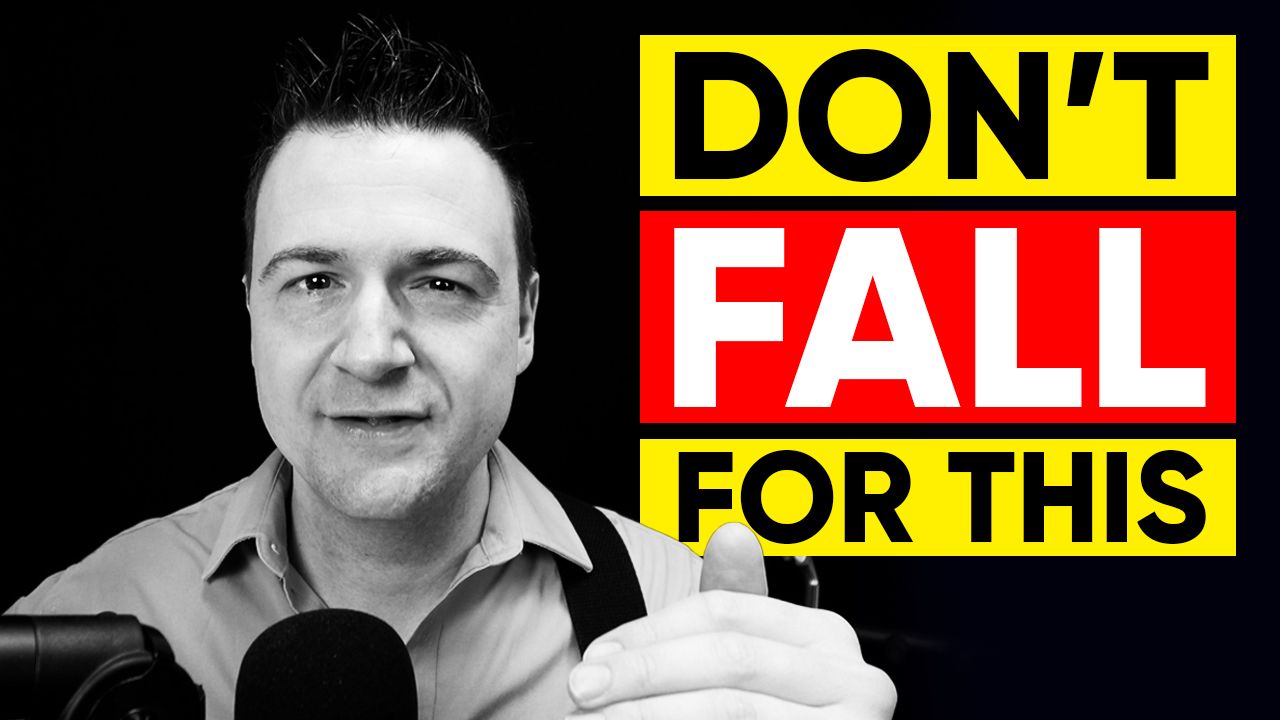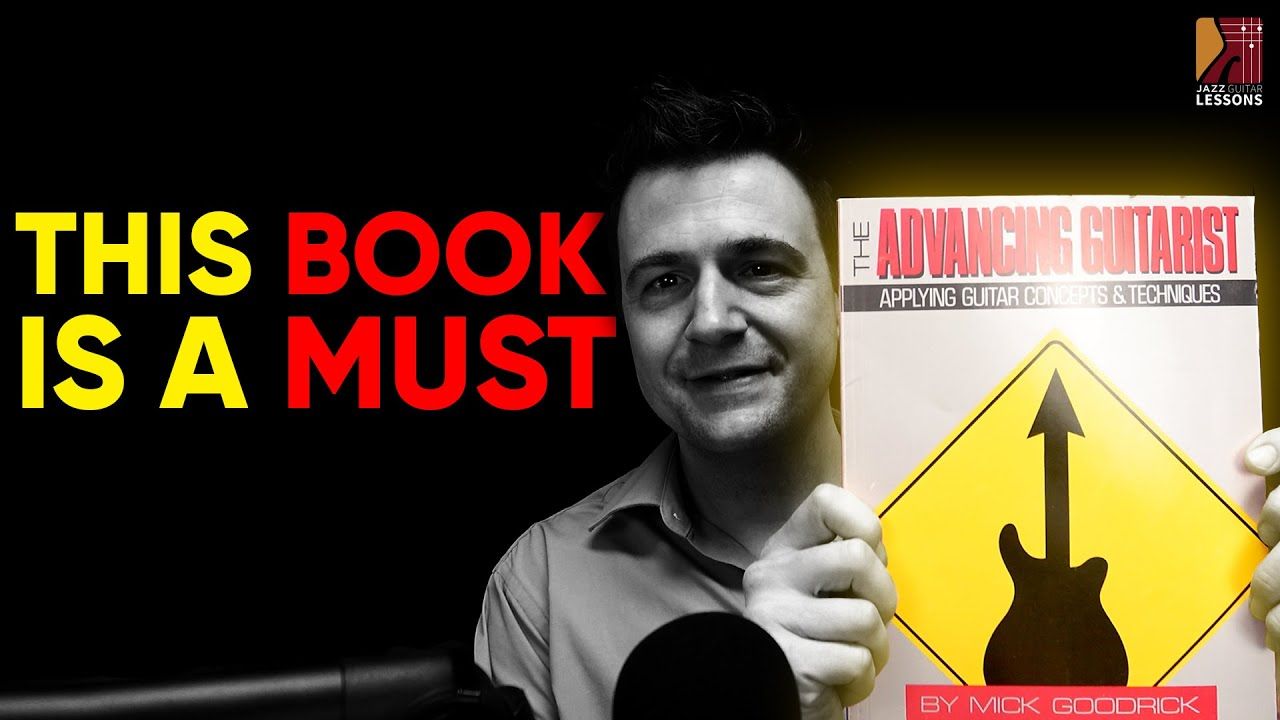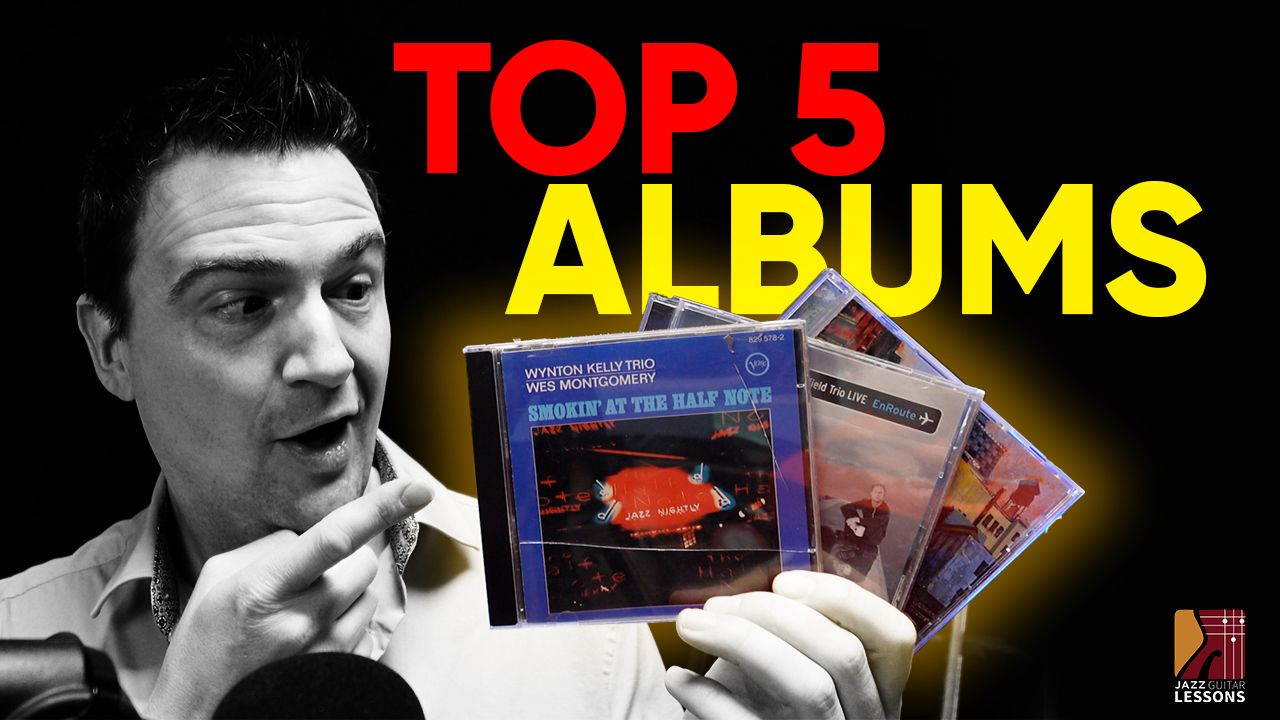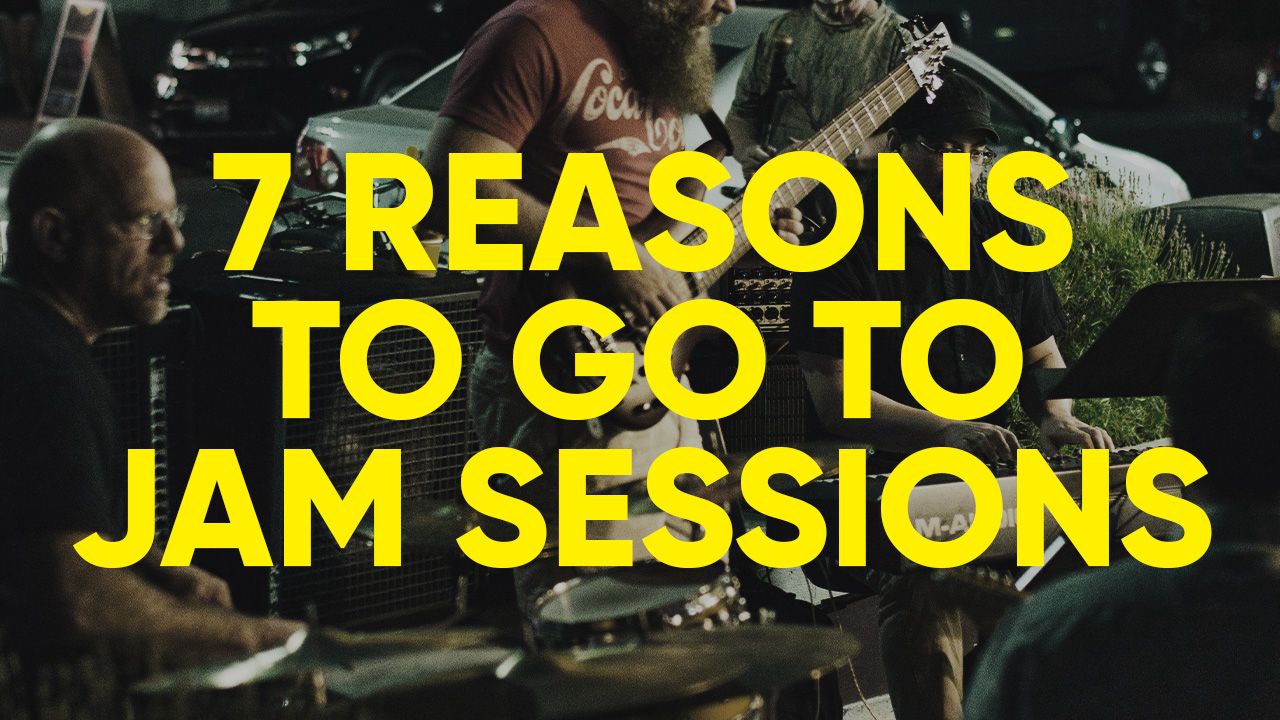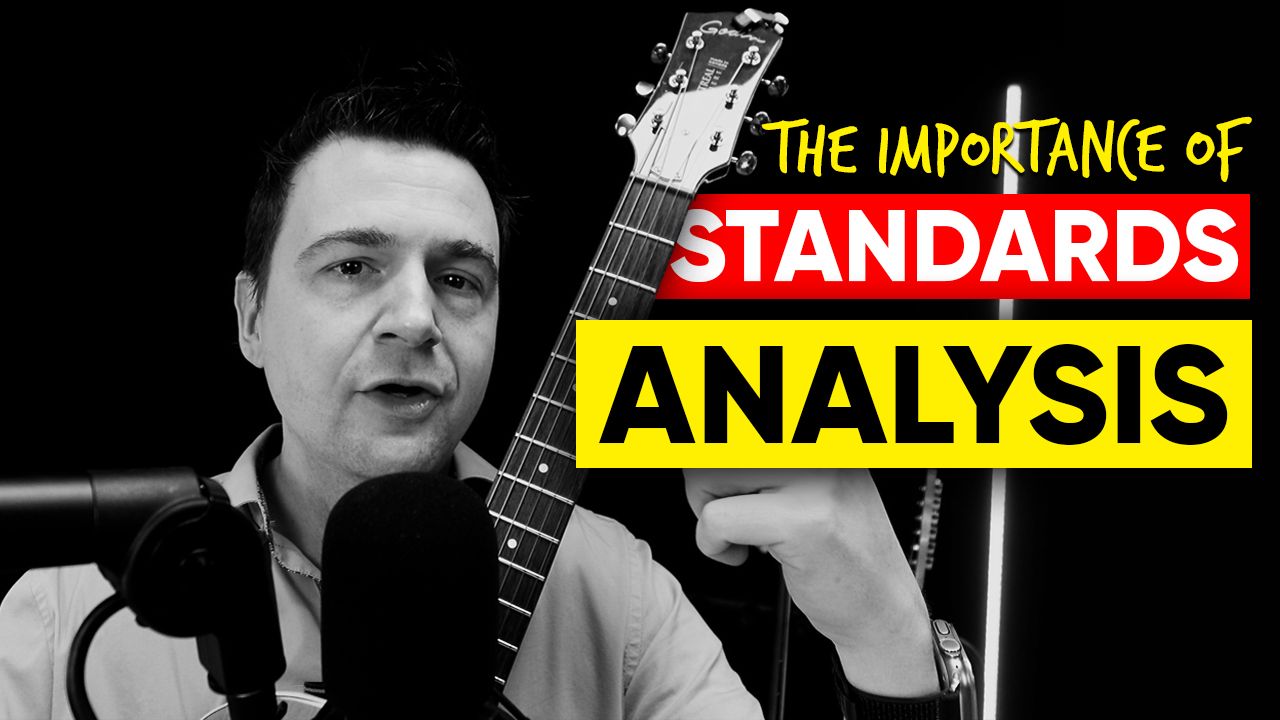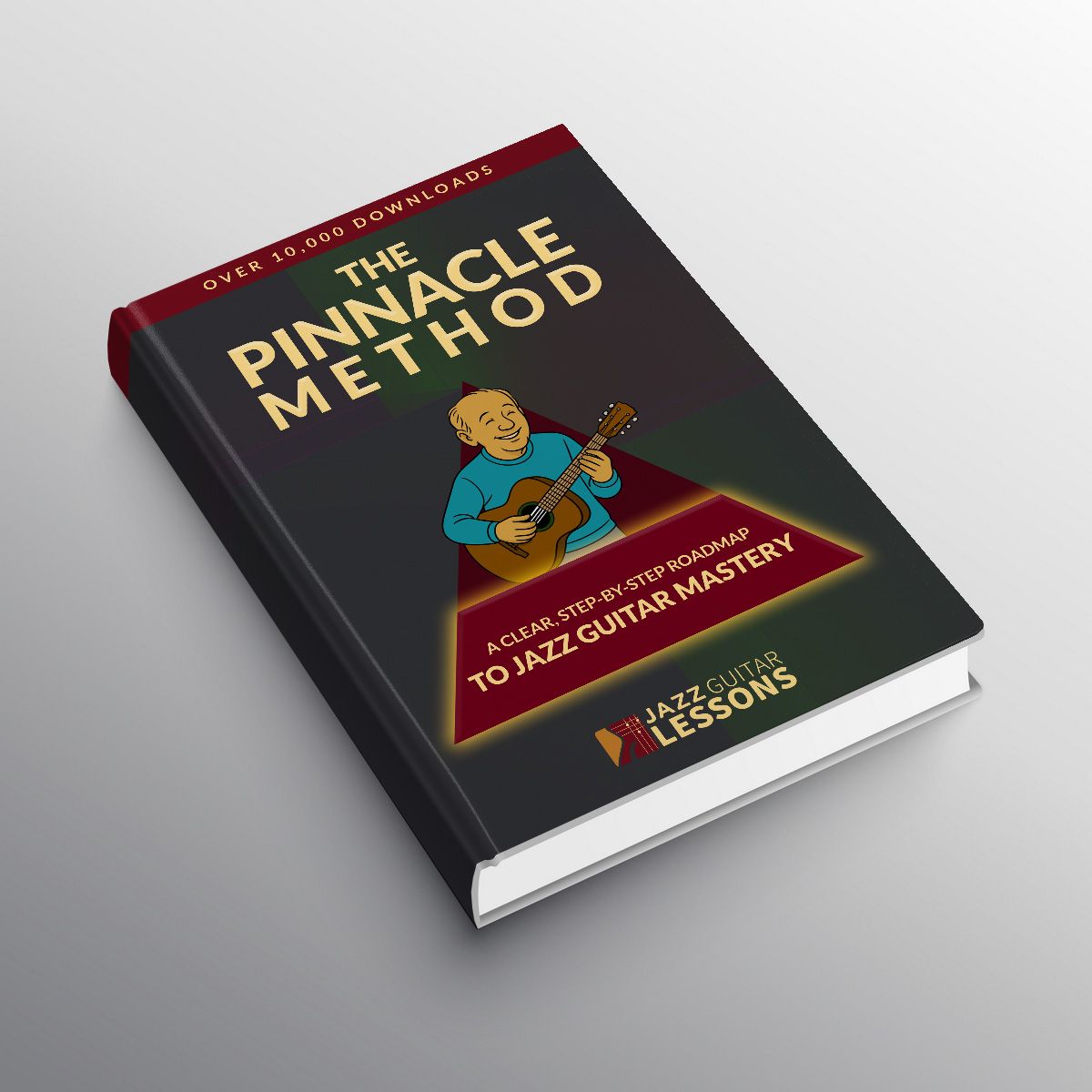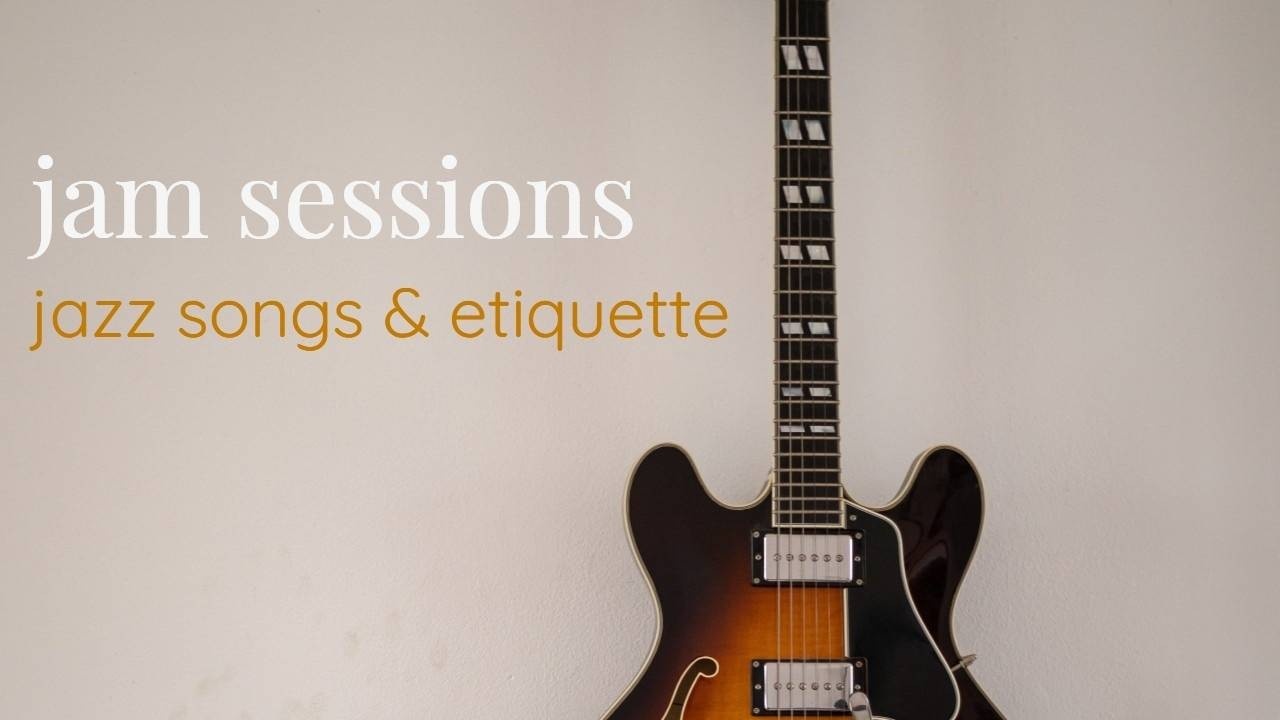
Jam Session Etiquette and Common Jazz Jam Session Songs
Jul 10, 2019Favorite Songs + The Do's and Dont's of Jam Sessions
jam session

Jam sessions are about sharing music with fellow musicians with whom you may or may not often have a chance to play with. One might say its main purpose is more about social interaction than musical interaction.
You can meet new people, see old friends, hear new music, play great music and gain plenty of valuable experience. It is a great thing to do for an evening, if you want a break from your usual routine of chilling out at home, or watching a sports game on the television.
So, go to the club, buy a drink and relax!
Here is our List of Common Jazz Jam Session Songs
Here's a short list of tunes that are very commonly called at most jazz jam sessions. It's by no means an exhaustive list, so write in the comments below some names of tunes you think are missing!
- There Will Never Be Another You
- All the Things You Are
- Have You Met Miss Jones
- Autumn Leaves
- Summertime
- Footprints
- A multitude of blues heads, such as C Jam Blues (in C), Tenor Madness (in Bb), Sunny Moon For Two (in Bb), Straight No Chaser (in Bb, or sometimes F)...
- Blues for Alice (a Bird Blues)
- Donna Lee (usually with all instruments playing the head in unison, à la Joe Pass and NHØP)
- How High the Moon
- What Is This Thing Called Love
- Take the "A" Train
- Stablemates
- Stella By Starlight
- Ladybird
- In a Sentimental Mood
- Misty
- Body and Soul (especially for those tenor sax players :P )
- Black Orpheus
- The Girl From Ipanema
- Corcovado
- Blue Bossa
- How Insensitive
- Satin Doll
Now Some Tips on Etiquette
Here are a few things to consider so your evening goes well. Follow the advice below and I'm sure you'll want to go out over and over to enjoy your local weekly jazz jam session.
Getting Ready
- Important Preliminary Step : Go out and "sneak peek" the jam session for a two weeks before actually sitting in (playing). Get a feel for tunes that are often called ... learn them!
- Befriend the bandleader. Or at least, be on first name basis :)
- Make sure you are actually invited on stage by the leader!
- Try to play tunes you know and love. In the jargon we say call the tunes you like while you're on stage, or let another musician lead the way.
- Sit out the tune if you don't know it ;) *Sad but true!*
- Have in mind a few tunes you'd like to play just in case the leader asks *you* what you would like to play.
- Don't be critical of other's choices : If you don't like the tune, don't complain, simply sit down and take a break.
Playing the Tune: The Basics
- Best Advice : Take shorter rather than longer solos. Taking long improvisations over many, many choruses is akin to hogging the ball in team sports ...
- Use discretion: know when to play, know when to sit back and listen to the other players. Yes, guitarists, I'm talking to you! You don't have to play chords over everything.
- Pay attention to details where possible: intros, endings, etc. Keep your ears wide open at all times, you won't regret it.
- Be mature about your approach. "Higher, louder, faster" will usually alienate your fellow musicians.
- There is no need for a bass or drum solo on every tune. Discuss this and plan ahead whether or not these instruments will improvise. This little chit-chat should happen before the tune is counted in, of course!
- Comping : If playing "backgrounds" (riffs) or accompaniment on your instrument , remember to be tasteful and well balanced so as to not distract from the soloist.
Trading 4's or 8's with drums : Remember the order of the soloist and try to keep it the same for drums trades. - For ballads, split the choruses in half (for solos or on the head out). This will shorten the length of the song.
- Be very tasteful and supportive when jamming with singers. Try to play in between their phrases, to compliment what they doing.
And lastly ...
- Always pay attention! Don't let your mind wander off into space, therefore missing the end of the bass solo, or worse, forget where you are in the form. Stay focused and everything will be fine.
- Guitarists and pianists: Take turns comping (playing chords) behind the soloist(s). Use eye contact to communicate who will comp for the first solo, who will comp next, etc.
- Stay involved between tunes: Others may be trying to tune their instruments, or discuss which song to play next. When the song is over don't simply "check out" or "noodle", stay alert!
Overview: Respect, Respect, Respect
- Playing 3 tunes is more than enough at a jam session; our standard in Montreal is two songs. Staying on stage all night is just rude!
- Respect the leader's position as he/she organizes musicians for jamming. Remember, you're a guest at the jam session.
- Listen to the other players improvise; it's best to avoid talking (or worse, noodling!) when on the stage during a song.
- There are always musicians of varying ability and experience at the jam session ... and you are one of them! Save your comments or suggestions for later. Be constructive and respectful, always. Harshness and negative criticism is of no use on the bandstand!
- Always ask the house guitarist / bassist if you may use his amplifier. If you are bringing your own, setup and tear down your gear between songs (not during!!!)
- Upright bassists: politely ask the house bassist if you can play his instrument before jumping up on stage.
- When finished: Thank the house band and the other musicians around you. Introduce yourself to total strangers. This goes a long way in creating meaningful relationships.
- Personally, I always do a round of handshakes before and after playing. I made many friends / colleagues in this fashion!
Quick Vlog on the Topic of Jazz Jam Sessions
Editor's note: post republished on July 8, 2019. Improved featured thumbnail, added relevant links and cleaned up some text.


